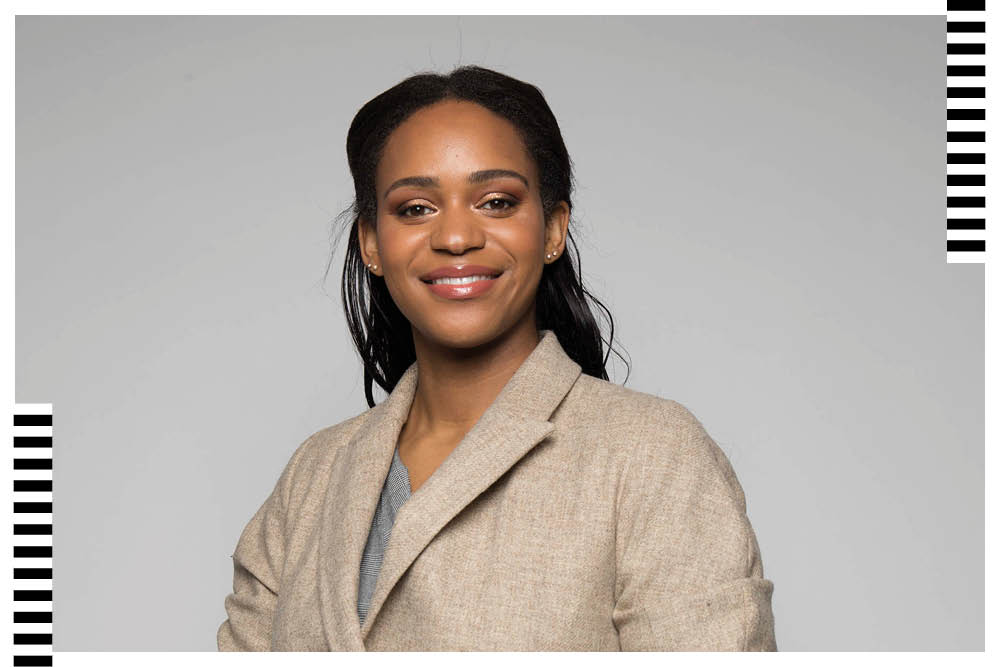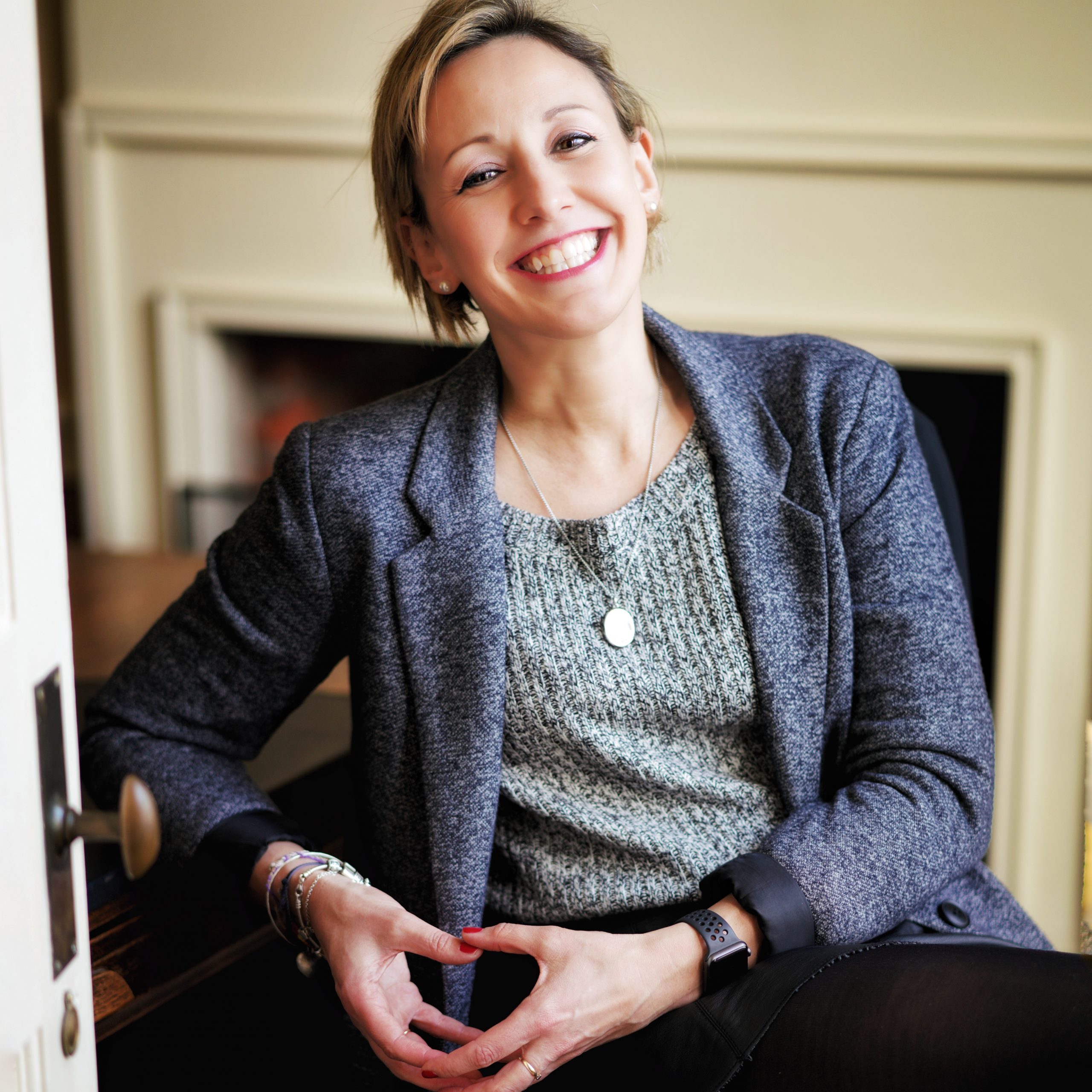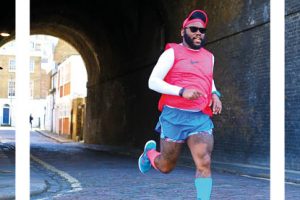Faith Johnson of Caramel Rock on Empowering Young People

Throughout the global pandemic we have heard inspiring stories of businesses who have turned their hand to providing support during a time of crisis. I came across Caramel Rock, a fashion and education charity in London, as the founder Faith Johnson was featured on the Instagram of the University of East London (UEL), of which we are both graduates.
At the same time as the pandemic, we have witnessed globally an incredible movement for Black Lives Matter and a shift in momentum of anti-racism work and support. As a black British female business owner, I wanted to chat to Faith about her story and how she is an inspiration for young black women and gives hope to youngsters for their future, in her borough of Newham.
Where did Caramel Rock start?
It began in 2008 in Newham. I’m a resident of Newham and during this time I used to do cheerleading, but the difference with the organisation was that it was about supporting the local community, so it’s more than just an activity. We became a family over all the years that we spent with one another, and its objective was really about using an engaging tool to connect to people. I was there from the age of seven right up until the age of about 23.
I spent the first part of my whole childhood, teenage and young adulthood as a cheerleader and living within a community that was – and still is – deprived and lacked opportunity, yet the cheerleading organisation gave me that. We had opportunities to travel, we learned leadership skills and it really built the beginning core of who I was as an individual and shaped my identity. There were coaches and the CEO really cared about us as children; she was almost like our second mother! I really wanted to create a project that supported young people at that time.
My director helped me to set up Caramel Rock – it was a remarkable moment. She helped me with a business plan, and there was a youth Dragon’s Den that was run by UEL and Elba. This was where I received my first £2,000 in 2008. At that time, everything I was learning and taking forwards, it grew from there.
Caramel Rock’s tagline is ‘Using fashion to connect the disconnected’. Who for you are those who are disconnected and what does ‘disconnected’ mean?
It’s for anyone that doesn’t feel connected, so it’s really a word for someone to take for themselves. If they feel they are isolated or have no-one to connect to then they are the disconnected. For us as an organisation, the people that we serve do fall under a demographic: young people who may have come out of care, who may be young offenders, who may have disabilities and vulnerable adults. So it’s really a term that’s coined for anyone who feels that way. A person finds Caramel Rock because they are not connected and we will welcome them so that they can become connected, whenever they may not be receiving that connection such as at school, or wherever it may be.
Considering the background of your learners, would you say pastoral support is a key part of Caramel Rock, to enable those young people, and also their families, to thrive?
Absolutely. It’s a really important part within our educational provision and it is something that is supposed to be standard within education. Any child or young person that attends secondary schooling, or a college of further education; every individual should receive pastoral care.
As an educational provider, we continue to put additional emphasis on that piece, because although we do fun and creative activities, for a lot of the service users they have so much more going on outside of them wanting to do the training provisions. Therefore, we do pride ourselves on making sure we have a good strong pool of additional services.
For example, if any of our young people are suffering with depression or anxiety, we can connect them to the right qualified organisations that can serve those additional needs that we don’t serve internally. For some of our young people, they just want someone to talk to, who has a shared passion for fashion or creativity, and continue to meet on a weekly basis for that pastoral support, in addition to the technical skills they may be learning.
What was really lovely when I listened to Bianca’s (student) video on your website, she talked about Caramel Rock feeling like home. The language she uses and hearing you talking about the cheerleading coach who was like a second mum, connection, home, support and partnership, you can see those values really sit front and centre at Caramel Rock.
How important is collaboration with the educational partners you work with, as well as making sure your students are skilled in the right way?
It’s a strong part of our progression. When we have a young person who comes to us and wants to do one of our provisions, a lot of the time they want to be a designer, and so we one, educate them on the vast opportunities within the sector, and then two, help them understand the current job market in the sector. This is so they have a real sense – I don’t want to necessarily use the word realistic, because we never want to say to someone ‘oh, you can never be that’, because that’s against what we stand for, but it’s more, ‘okay, this is the end goal, what is the action plan to get there?’ This course may be the first step, and you’ve taken that step, so that’s brilliant. And then maybe the next step is, ‘what’s the first entry level job we can get you in?’
The student’s end goal could be ‘I want to be the next Alexandra McQueen who came from East London and has created a legacy’. Then we ask ‘okay, you want to get to there and how can we help you get to there?’. There is a strong part of our progression plan around, they’ve done the course, what’s next for them? They might go into London College of Fashion, they might go into Newham College, they might go into UEL and do a foundation. At the same time continuing to build our employer pool to ensure the students can potentially go into apprenticeships or paid internships. Therefore, collaboration is a strong element of our progression plan for anybody that participates in our provisions.
On your website you talk about BME Fashion. As a black female managing director leading a business within the much needed amplification of voice and movement around Black Lives Matter, where do you believe Caramel Rock has been able to not only support, but be a voice for education and awareness for young black people?
It’s something I’ve been banging on about for so long, and I think in previous years I’ve consciously been sensitive because it wasn’t the right time. It’s seeing how we are able to navigate within the sector around diversity and what that means. I think even with the whole movement of Black Lives Matter stemming from yet another killing that happened to somebody in America, it’s important for me to say that, yes, all lives matter, absolutely, but one of the challenges I do have is the inclusivity around all ethnic groups, which I think is important. The issue is there is almost an unconscious systematic block for people who are black, and culturally when you look at Asian communities and statistics, they progress so much more than a young black boy, for example.
This is a cultural issue within different communities and something I’m really passionate about because young black boys are at the bottom of the list, and so it’s so much more difficult. I’m very passionate about how we can support the black community because it’s a lot of the time we are always at the far back within any ethnic group.
I’ve been running the organisation for so long and I’ve been in meetings where I am the only black person. I have been at events with senior leaders within the fashion industry and there are literally 60 people in the room and I’m the only black person or I’m with my colleague and we are the only black people in the room. I am so confused. These things aren’t done intentionally – I would never say that these things are done intentionally – they’re not, but that’s the definition of systematic: it’s unconscious, and I want to bring that to peoples’ realisation.
Living in London, which is such a diverse city, and as an organisation it’s never been intentional; we focus on black people but it is by chance that is the demographic of our services. I’m very encouraged that people are willing and open to talk about it. I’m excited as well about what the future holds for society. In my own way, I’m just hopeful of doing my very, very small part in what we can do.
Finally, Caramel Rock adapted with Covid-19 by supporting our amazing key workers without PPE, by making face masks and distributing locally to care homes and homeless shelters. This is an incredible initiative to support your local community.
I can add something to that. One thing we are hoping to do as part of our legacy piece is to continue the face covering effort and to sell face coverings for people to buy. This will then help our volunteers who are a part of this initiative to receive some kind of paid work. Currently we’ve all been chipping in and volunteering, but by being able to sell some of the face coverings it will provide work for the makers and we can create a ‘Made in E16’ initiative.
Head to the website to learn more about Caramel Rock, and be sure to check them out on Instagram, Facebook and Twitter.













